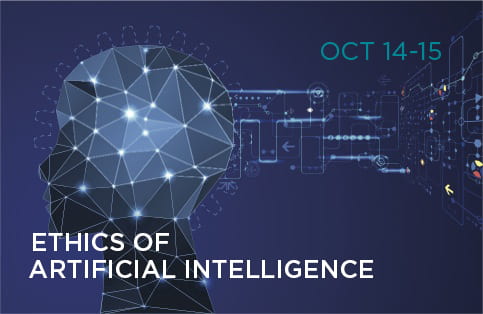
On October 14-15, 2016, the NYU Center for Bioethics in conjunction with NYU Center for Mind, Brain and Consciousness will host a conference on “The Ethics of Artificial Intelligence”.
Recent progress in artificial intelligence (AI) makes questions about the ethics of AI more pressing than ever. Existing AI systems already raise numerous ethical issues: for example, machine classification systems raise questions about privacy and bias. AI systems in the near-term future raise many more issues: for example, autonomous vehicles and autonomous weapons raise questions about safety and moral responsibility. AI systems in the long-term future raise more issues in turn: for example, human-level artificial general intelligence systems raise questions about the moral status of the systems themselves.
This conference will explore these questions about the ethics of artificial intelligence and a number of other questions, including:
What ethical principles should AI researchers follow? Are there restrictions on the ethical use of AI? What is the best way to design morally beneficial AI? Is it possible or desirable to build moral principles into AI systems? When AI systems cause benefits or harm, who is morally responsible? Are AI systems themselves potential objects of moral concern? What moral framework is best used to assess questions about the ethics of AI?
Speakers and panelists will include:
Peter Asaro (The New School, Media Studies), John Basl (Northeastern University, Philosophy), Nick Bostrom (Future of Humanity Institute), Meia Chita-Tegmark (Future of Life Institute), Kate Devlin(Goldsmiths College, University of London, Computer Science), Vasant Dhar (NYU Data Science, Stern), Virginia Dignum (Delft University of Technology, Technology, Policy and Management), Mara Garza(UC Riverside, Philosophy), Daniel Kahneman (Princeton, Psychology), Adam Kolber (Brooklyn Law), Yann LeCun (Facebook, NYU Data Science), S. Matthew Liao (NYU, Bioethics), Gary Marcus (NYU, Psychology), Steve Petersen (Niagara University, Philosophy), Peter Railton (University of Michigan, Philosophy), Francesca Rossi (University of Padova, Computer Science), Stuart Russell (UC Berkeley, Computer Science), Ronald Sandler (Northeastern University, Philosophy), Susan Schneider(University of Connecticut, Philosophy), Eric Schwitzgebel (UC Riverside, Philosophy), Jaan Tallinn(CSER), Max Tegmark (Future of Humanity Institute), Wendell Wallach (Yale, Bioethics), Stephen Wolfram (Wolfram Research), Eliezer Yudkowsky (Machine Intelligence Research Institute), and others.
Organizers: Ned Block (NYU, Philosophy), David Chalmers (NYU, Philosophy), S. Matthew Liao (NYU, Bioethics)
Registration is free but required. REGISTER HERE. Please note that seating is limited, and is first come first served: it is not guaranteed by registration.
LIVE STREAMING TIPS:
– In advance of the event date, we recommend individual users go to livestream.com and test playback of an event currently streaming through the platform. This allows the individual to determine if his/her own unique firewall settings prevent video streaming. Any questions resulting from this test should be directed to the individual’s own IT support.
– For the strongest internet connection, we recommend using a *wired Ethernet connection* rather than wifi. This allows for smoother streaming.
– Livestream automatically chooses between low, medium, and HD quality bandwith based on the strength of your connection. If you experience buffering, you can also lower your bandwith manually on the player.
– You can test your connection speed using: http://www.speedtest.net (This allows you to gauge if you connection is unusually slow prior to an event. If the test does show poor results, please contact IT to advise.
– For more info about how to view, you can check out Livestream.com’s FAQ.
